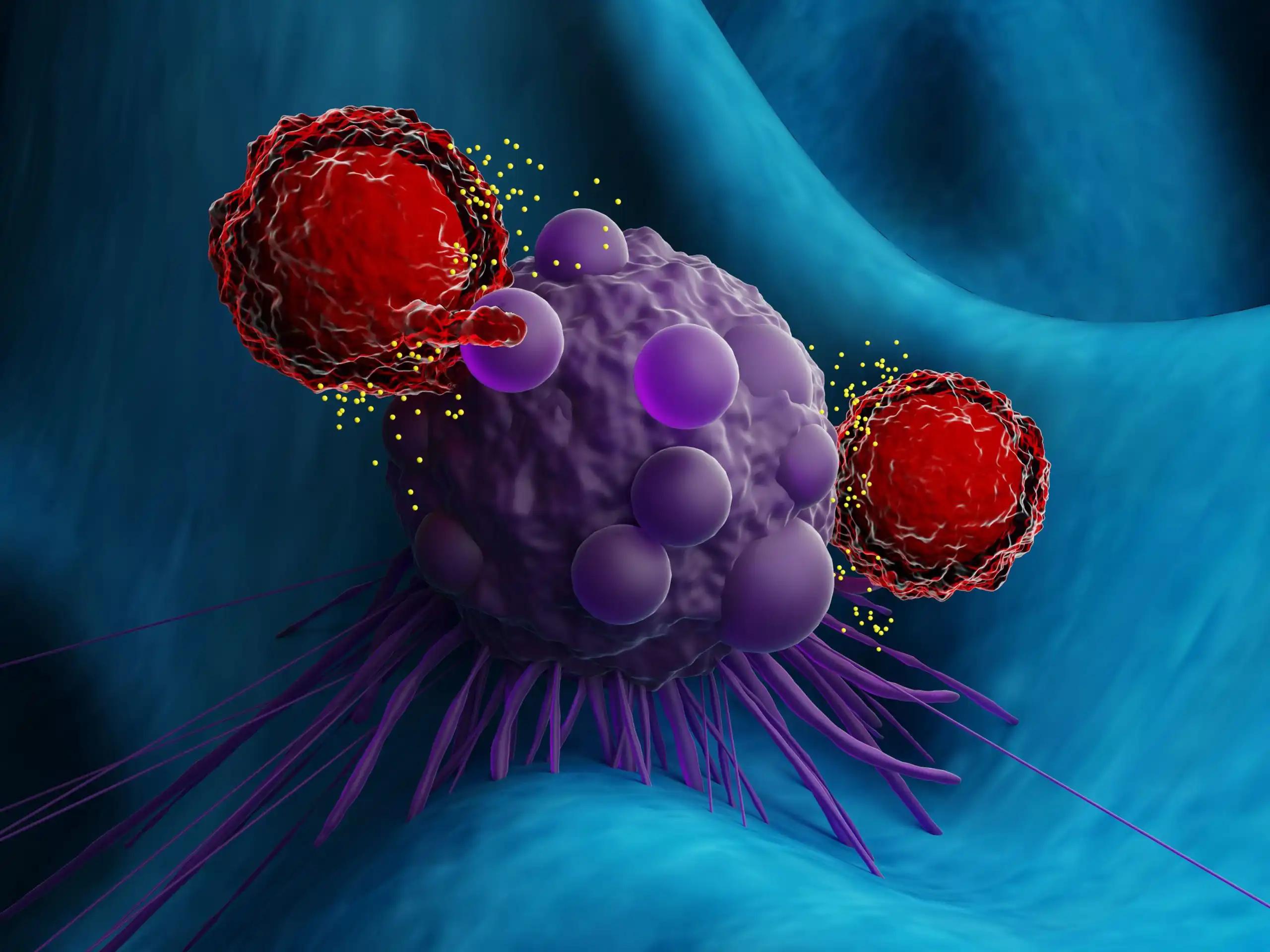KEY TAKEAWAYS
- This ongoing Phase 2/3 study examines the safety and efficacy of navtemadlin as maintenance therapy in TP53WT advanced or recurrent EC patients who responded to chemotherapy.
- The Phase 2 primary endpoint is RP3D, while the primary endpoint for Phase 3 is PFS by blinded independent review.
Advanced or recurrent endometrial cancer (EC) has a bleak prognosis, with a 5-year survival rate around 17% (Colombo 2016; Siegel 2022). Maintenance treatments are being explored to prolong the effectiveness of initial chemotherapy or chemoimmunotherapy, and new drugs are under investigation to enhance survival rates.
The p53 protein can detect DNA damage and oncogenic aberrations that lead to the orderly apoptosis of tumorigenic cells. MDM2, a primary inhibitor of p53, is overexpressed in approximately 50% of EC patients due to the loss of p14ARF (Jeczen 2007), which modulates MDM2 levels within the nucleus.
Navtemadlin, a selective MDM2 inhibitor that is orally administered, has been shown to reactivate p53-induced cell death in tumors with a wild-type TP53 gene. Given EC’s sensitivity to genotoxic chemotherapy, navtemadlin as a post-chemotherapy maintenance treatment could potentially sustain p53 activity and control tumor cells in about half of EC patients with wild-type TP53 (Nakamura 2019).
KRT-232-118 assesses the safety and efficacy of navtemadlin as maintenance therapy in TP53WT advanced or recurrent EC patients who have responded to chemotherapy.
Eligible patients for the study are adults with an ECOG PS score of 0-1 who have undergone up to six cycles of chemotherapy and have achieved either complete or partial remission as per RECIST v1.1 criteria. In the open-label Phase 2, participants are randomly assigned to take 180 mg or 240 mg of oral navtemadlin daily (Day 1-7 of a 28-day cycle), or be under observation.
The primary goal is to identify the recommended Phase 3 dose (RP3D). In the double-blind Phase 3, patients will be randomized to receive either the RP3D or a placebo; the study will be stratified based on response and disease stage. The primary endpoint of Phase 3 is progression-free survival as assessed by blinded independent review.
Source: https://www.emma.events/site/programme/?sessiondetail=4534566&trackid=0&a=esgo2023#!
Clinical Trial: https://classic.clinicaltrials.gov/ct2/show/NCT05797831
Concin, N., Giorgi, U.D., Gorp, T.V., Alexandre, J., Lindemann, K., Marth, C., Berger, R., Cibula, D., Quindós, M., Bologna, A., Korach, J., Papadimitriou, C., Nicum, S., Collins, D., Myers, R., Rothbaum, W., Herzog, T.J., Monk, B.J., Cloven, N.G. Trial In Progress: A Phase 2/3 Study Of Navtemadlin As Maintenance Therapy In Patients With Advanced Or Recurrent Endometrial Cancer (EC) Who Responded To Chemotherapy (ENGOT-En21 And GOG-3089).



